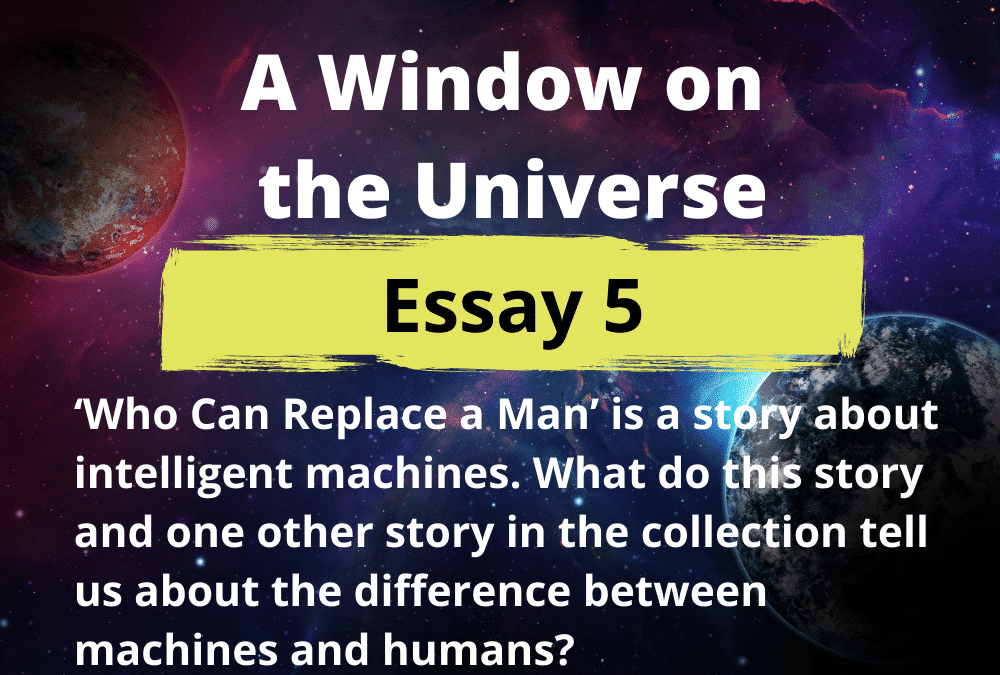A Window on the Universe Essay Question and Sample Answer
A Window on the Universe Essay 5
‘Who Can Replace a Man’ is a story about intelligent machines. What do this story and one other story in the collection tell us about the difference between machines and humans?
In A Window on the Universe, humanity and technology are compared and shown to be fundamentally different. Machines might be more intelligent or powerful, but humans have emotions and free will. These are issues addressed in ‘Who Can Replace a Man?’ and ‘Human Is’.
Machines in these stories can be intelligent and do helpful jobs, but they are still ultimately subordinate to humans. In ‘Who Can Replace a Man?’, the whole story guides the reader towards the idea that machines could be the new rulers of Earth, since humanity has been all but wiped out. However, the machines are clearly not as effective as humans, because many of them lack flexibility. Thus the small issue of an unlocked store causes chaos amongst the machines. The story also ends with the anti-climactic revelation that as soon as they see a human, they immediately obey him. This is reflected in ‘Human Is’, in which machines, such as the self-cooking stove, are shown to be serving humans. This shows one key difference between humans and machines: machines are incapable of truly thinking for themselves or organising a resistance, because of their ultimate subordination to their creators.
Machines’ lack of emotion is another crucial difference between them and humans. In ‘Who Can Replace a Man?’, the machines begin to resemble humanity in many ways, such as with their rational thought and organisation into a group. This closeness to human behaviour makes their lack of emotion and empathy even more shocking when it is revealed. In an apparent display of utter cruelty, the servicer (and subsequently other machines) is left to die, despite crying out, possibly in pain or abandonment. The machines are acting in entirely logical and rational ways, without considering the negative impact on the victim. This lack of empathy highlights to the reader the importance of emotion in what makes us human.
The distinction between machine and humanity is sometimes blurred, however. The title of ‘Human Is’ implies that the story addresses fundamental questions about what makes us human. Although the story is largely about alien invasion, there are several comparisons between Lester and machinery, suggesting that humans, without emotion and kindness, can be as bad as machines. Like a computer, Lester thinks only logically, seemingly uncaring about how his approach affects his wife. Similarly, his absolute dedication to his work is reminiscent of the inflexible machines in ‘Who Can Replace a Man?’. This again reflects the importance of emotion for humanity, though also shows that even humans can have machine-like tendencies.
In these two stories, emotion is shown to be a uniquely human trait, as opposed to machines, who are cold and inflexible in their thinking.
Students also browsed:



